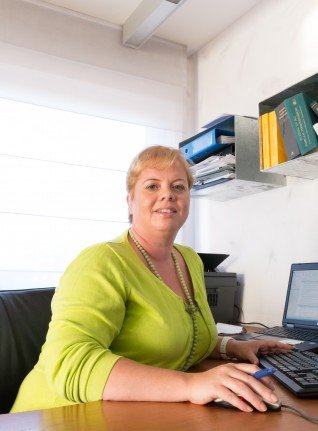Mediation

Ever more people seek an alternative way to settle their conflicts outside court.
In order to support our clients , Mr. VERHOLLEMAN achieved in 2017 the degree of Family Mediator at the Vives Hogeschool Kortrijk.
Whet exactly implies mediation?
Mediation is a way to settle conflicts, whereby the parties involved together seek for solutions that are acceptable for both, this under the guidance of a trained independent third party, the mediator.
Outside court: parties search for the solutions themselves instead of submitting their conflict to a judge.
The mediator guides the discussions that are conducted along certain regulations. He asks questions and ensures in this that each party has sufficient say to put forward their problems and wishes. He does not offer solutions himself and does not impose solutions either. He is impartial and ensures that the equilibrium between parties is safeguarded.
Attention for children: the mediator safeguards during the mediation also the interests of the children that are unwillingly part of the conflict as well.
Respect and confidentiality: parties are motivated to listen to each other and treat each other respectfully. It is agreed with parties that the contents of all mediation discussions remain between them and is not shared with others.
In-depth information: parties are informed in-depth, which allows them to make deliberate decisions.
In short: mediation can be started after transfer by court, but also at the own initiative of the parties involved. The mediation process consists of various phases taking place over a number of sessions. The concrete number of sessions differs between mediations. During the final phase the solutions brought forward by the parties are put in writing in a detailed agreement that can then be homologated by court.
Some examples of conflicts in which we can help you:
You decide divorce and you want a divorce by mutual consent.
Since many years you have regulated residence for your three children, but now you or your ex-partner wish to change this regulation.
You and your partner separate after a long period of cohabitation, and you cannot decide what should happen with the house that you bought together, but that your partner and his family renovated.
You have an unplanned pregnancy, but together with the father you decide to terminate the relation. You both wish to take up your role as a parent as soon as the child is born, but there is a dispute about how each of you can fill in that part.
Through our years of experience in personal and family law, our firm can ensure you that during the mediation process you are informed substantially and correctly, meaning that you can take deliberate decisions.
It is also ensured that the agreement reached is translated judicially correct to avoid that new conflicts would arise when executing the agreement.
If you wish to start up mediation, of should you need more information, please contact Mr. VERHOLLEMAN at the e-mail address verholleman@vvv-advocaten.be.
Ever more people seek an alternative way to settle their conflicts outside court.
In order to support our clients , Mr. VERHOLLEMAN achieved in 2017 the degree of Family Mediator at the Vives Hogeschool Kortrijk.
Whet exactly implies mediation?
Mediation is a way to settle conflicts, whereby the parties involved together seek for solutions that are acceptable for both, this under the guidance of a trained independent third party, the mediator.
Outside court: parties search for the solutions themselves instead of submitting their conflict to a judge.
The mediator guides the discussions that are conducted along certain regulations. He asks questions and ensures in this that each party has sufficient say to put forward their problems and wishes. He does not offer solutions himself and does not impose solutions either. He is impartial and ensures that the equilibrium between parties is safeguarded.
Attention for children: the mediator safeguards during the mediation also the interests of the children that are unwillingly part of the conflict as well.
Respect and confidentiality: parties are motivated to listen to each other and treat each other respectfully. It is agreed with parties that the contents of all mediation discussions remain between them and is not shared with others.
In-depth information: parties are informed in-depth, which allows them to make deliberate decisions.
In short: mediation can be started after transfer by court, but also at the own initiative of the parties involved. The mediation process consists of various phases taking place over a number of sessions. The concrete number of sessions differs between mediations. During the final phase the solutions brought forward by the parties are put in writing in a detailed agreement that can then be homologated by court.
Some examples of conflicts in which we can help you:
You decide divorce and you want a divorce by mutual consent.
Since many years you have regulated residence for your three children, but now you or your ex-partner wish to change this regulation.
You and your partner separate after a long period of cohabitation, and you cannot decide what should happen with the house that you bought together, but that your partner and his family renovated.
You have an unplanned pregnancy, but together with the father you decide to terminate the relation. You both wish to take up your role as a parent as soon as the child is born, but there is a dispute about how each of you can fill in that part.
Through our years of experience in personal and family law, our firm can ensure you that during the mediation process you are informed substantially and correctly, meaning that you can take deliberate decisions.
It is also ensured that the agreement reached is translated judicially correct to avoid that new conflicts would arise when executing the agreement.
If you wish to start up mediation, of should you need more information, please contact Mr. VERHOLLEMAN at the e-mail address verholleman@vvv-advocaten.be.